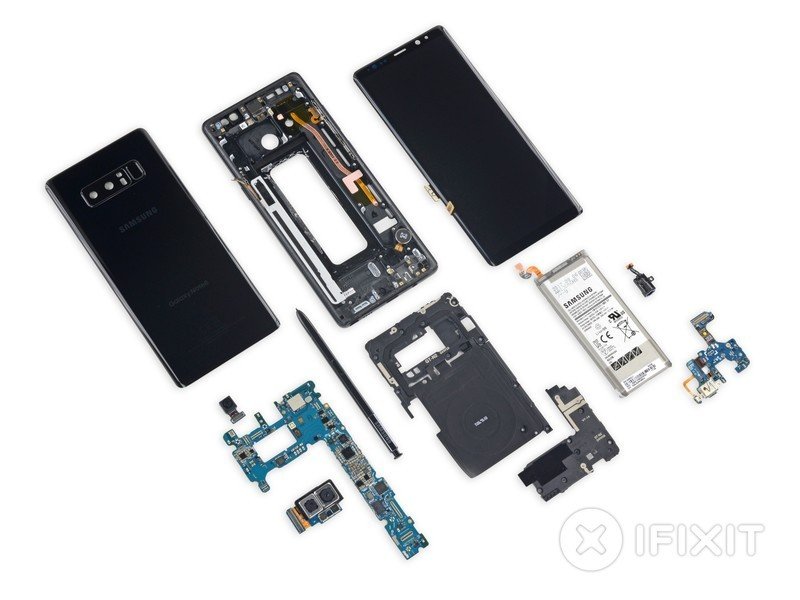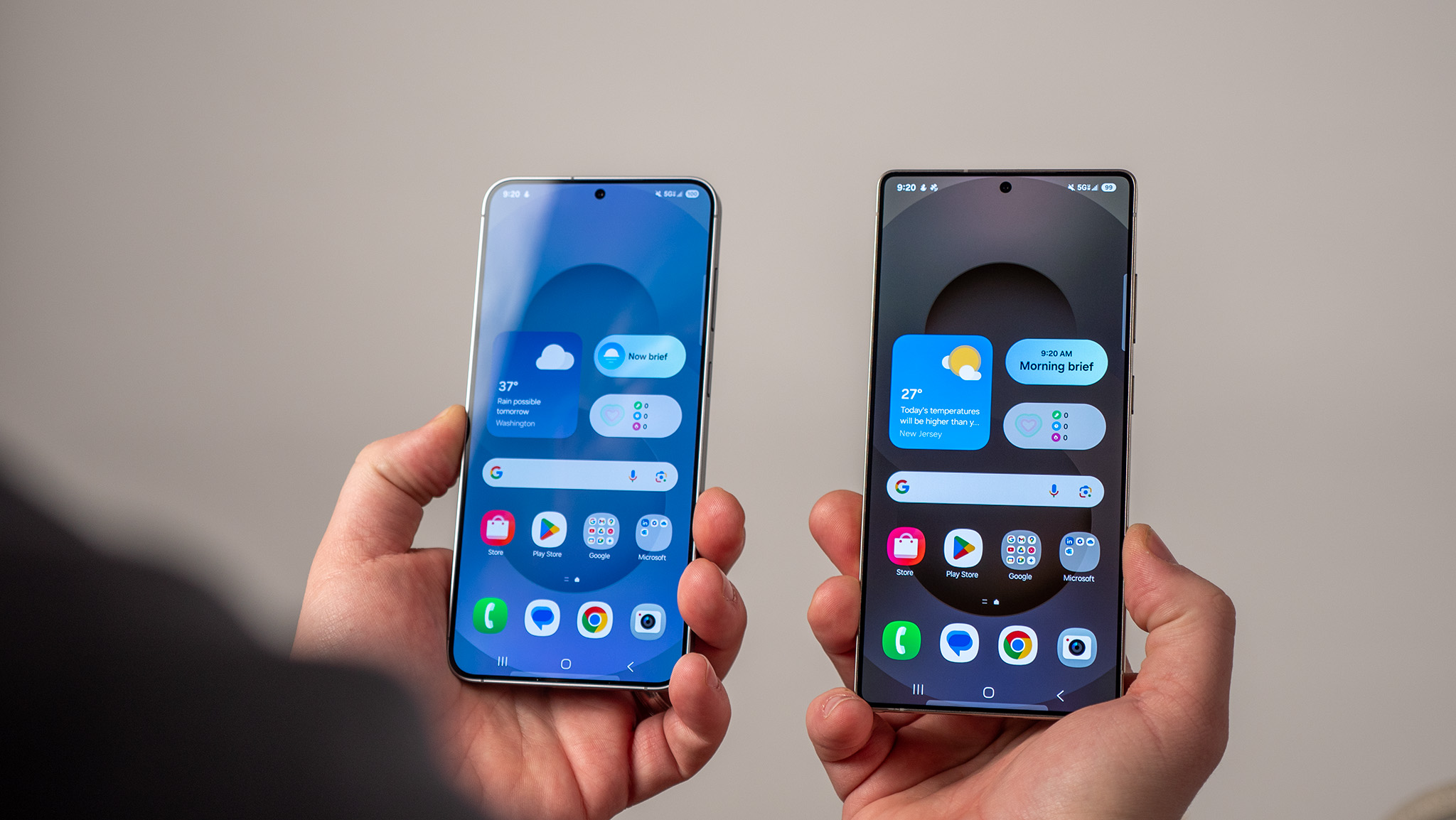Galaxy Note 8 teardown shows off familiar innards, a battery that (hopefully) won't explode

The Galaxy Note 8 will go on sale starting September 15, and a few customers are already starting to receive their units. The folks at iFixit have managed to get their hands on a unit, proceeding to tear it down to give us a look at the innards.

With Samsung switching to an extra-tall Infinity Display, there's more room to house the internal components. The company opted to go with a 12.71Wh battery (3300mAh at 3.85V) on the Note 8, which is 6% less than the one it used in last year's device and slightly more than the 12.32Wh (3200mAh at 3.85V) battery featured in the Note 7 Fan Edition.
Like previous years, the battery is sealed in with copious amounts of adhesive, but Samsung moved the location of the battery to dead-center at the back, with the vibration motor now located at the bottom right.
The phone has a total of four cameras — a front 8MP camera complemented by an iris scanner, along with two cameras at the back. Samsung's dual camera setup at the back consists of a wide-angle lens and a telephoto lens, with both sensors offering OIS (which iFixit was able to confirm).
As for the rest of the hardware, the Note 8 features Samsung's own LPDDR4X memory module and UFS flash storage, Avago's ICs, and a whole lot of Qualcomm components:
- Samsung K3UH6H60AM-NGCJ 6 GB LPDDR4X SDRAM layered over a Qualcomm Snapdragon 835
- Samsung KLUCG4J1ED-B0C1 64 GB UFS flash storage
- Qualcomm WCD9341 Aqstic audio codec
- Skyworks 78160-11 power amplification module
- Avago AFEM-9066 power amplification module
- Wacom W9018 touch control IC
- Qualcomm WTR5975 RF transceiver
- Avago AFEM-9053 power amplification module
- Skyworks 77365 quad-band GSM/GPRS/EDGE power amplification module
- Qualcomm PM8986 PMIC
- Murata KM7628048 Wi-Fi module
The phone retains the 3.5mm jack, and the port is completely modular, which means you'll be able to replace it with ease should the need arise. The front-facing sensor assembly is also similarly modular. The Note 8 uses Phillips screws for the mid-frame and the NFC antenna, which should make it easier to conduct repairs.
However, the 6.3-inch display and the rear glass panel are held together by a large amount of adhesive, and the fragility of the panels means it'll take a lot of effort to access the internal hardware. Overall, the phone picked up a repairability score of four out of 10.
Be an expert in 5 minutes
Get the latest news from Android Central, your trusted companion in the world of Android

Harish Jonnalagadda is Android Central's Senior Editor overseeing mobile coverage. In his current role, he leads the site's coverage of Chinese phone brands, networking products, and AV gear. He has been testing phones for over a decade, and has extensive experience in mobile hardware and the global semiconductor industry. Contact him on Twitter at @chunkynerd.
